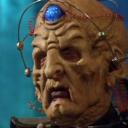Yahoo Answers is shutting down on May 4th, 2021 (Eastern Time) and beginning April 20th, 2021 (Eastern Time) the Yahoo Answers website will be in read-only mode. There will be no changes to other Yahoo properties or services, or your Yahoo account. You can find more information about the Yahoo Answers shutdown and how to download your data on this help page.
Trending News
Is it true that David Niven was the only pre-war British star to serve in the military during WWII?
I recently read that during the Second World War actor David Niven was the only British actor who had been a star in Hollywood prior to the war who served in the military during the war. According to what I read, the British Embassy advised all British stars in Hollywood to remain there for the duration of the war. Meanwhile it seems that folks who had been minor actors prior to the outbreak of the war, but who never achieved stardom prior to the war, may not have been so advised. How true is this?
7 Answers
- Louise CLv 73 years ago
Laurence Olivier returned to England having learnt to fly, he hoped to join the RAF. instead he joined the Fleet Air Arm, and made wartime propoganda broadcasts. Apparently he was not a very good flier. SOme other stars, like C Aubrey Smith and Leslie Howard for example, were too old for active service. Herbert Marshall only had one leg, having lost the other one in WW1. Robert Donat suffered from chronic asthma, which would have made him unfit for active service.
- Anonymous3 years ago
The brilliant Jack Hawkins served during the war. During the Second World War Hawkins served as an officer with the Royal Welch Fusiliers.[7] He became a colonel in ENSA for India and Southeast Asia.[7] During his military service he made The Next of Kin (1942) for Ealing Studios.
Source(s): Wiki. - Louie OLv 73 years ago
I can't believe you asked this. Last night I was watching the film Spitfire (1942), originally released in the UK under the title The First of the Few. I always liked David Niven and it made me wonder if he served in WW2. I looked it up and here's what I found.
- DavrosLv 73 years ago
British actors in Hollywood were indeed told to stay put by the war office, figuring they could do more good for the country there than being just another called up civvie. Niven was hardly an ordinary jobbing actor though and had already been an officer in the army previously. Clearly the need to serve mattered more to him.
That only applied to British stars actively working abroad in Hollywood. At the time the UK had a highly developed film industry of it's own and how many of it's stars chose to serve is not a figure I know.
But I think there is definitely truth in this. Britain was determined not to make the foolish mistakes of WWI where it flung all it's great minds into the meat grinder of the western front without fear or favour. Too many scientists, mathematicians, engineers, authors, poets, painters, sculptors, statesmen, reformers, musicians and sportsmen never returned from that war.
In WWII the UK wished to deploy it's Human resources much more effectively, and that included it's actors and actresses. Their job was to boost morale, raise awareness and just generally fly the flag: https://en.wikipedia.org/wiki/Category:British_Wor... There was also the damage to morale that could be suffered if a famous name got killed.
All in all a star of the day like George Formby was rather better employed making his string of wartime comedies than he was firing shells on Rimini.
Niven appeared to have had an impressive war record, and not one he ever willingly chose to share.
I always remember Christopher Lee's lifelong reticence to talk about his wartime experiences in special forces, citing that no horror film role he ever took on ever came even close to what he had witnessed on the battlefield. I don't blame anyone who preferred not to speak of their wartime past.
- How do you think about the answers? You can sign in to vote the answer.
- Anonymous3 years ago
The pre-war British film industry was just as vibrant and prolific (proportionately) as Hollywood – there were few British actors who went to Hollywood and were successful, there was little incentive with so much work available in Britain.
However, Leslie Howard, who starred in Gone with the Wind, was killed during the war.
- Anonymous3 years ago
It is not true.








